U.S. Legislator Challenges Trump Administration's Decision to Resume Nvidia H20 GPU Sales to China
8 Sources
8 Sources
[1]
U.S. legislators criticize decision to resume Nvidia H20 GPU shipments to China -- demand new export rules for AI hardware
Earlier this week, the U.S. government lifted its ban on shipments of AMD's Instinct MI308 and Nvidia's H20 processors for AI to Chinese entities, which pleased the companies, their Chinese customers, and investors. However, John Moolenaar (R), the head of a House of Representatives panel on China, has sent a formal letter to Commerce Secretary Howard Lutnick criticizing the move and requesting a briefing to discuss the decision and future actions of the executive branch. There is an interesting part: he does not call for a ban on the said GPUs again, but to develop a new set of rules. "I could not agree more, which is why I strongly supported the administration's ban on H20 sales [to Chinese entities] -- we must not allow U.S. companies to sell these vital artificial intelligence (AI) assets to Chinese entities," the letter signed by John Moolenaar on behalf of the panel reads. "The H20 chip significantly outperforms anything Chinese chipmakers like Huawei can currently produce, particularly in high-bandwidth memory -- a critical factor for AI inference workloads." Nvidia's H20 HGX GPU for AI applications was developed in response to the U.S. government's ban on shipments of more powerful H100 and H800 GPUs to Chinese entities in late 2023. Although the H100 can be 3.3 - 6.69 times faster than cut-down H20 HGX with AI data formats, H20 HGX is a massively successful product in China not only because it outperforms the vast majority of AI processors that can be produced in volume domestically, but also because Chinese companies prefer to use Nvidia's CUDA platform as it by far outclasses everything that Chinese companies have to offer. The congressman cited growing signs that Chinese companies are using Nvidia's H20 processors in ways that may breach current export rules. Among other things, he mentioned Tencent's reported use of Nvidia's H20s to train its Hunyuan-Large model, which likely required over 200 PFLOPS of computing power. A cluster of this capability would meet the U.S. government's definition of a supercomputer, placing it under restricted usage guidelines. Moolenaar also outlined the disparity between U.S. and Chinese production capabilities. While Huawei's partner SMIC is expected to produce only 200,000 of the company's Ascend 910B processors in 2025 (which is based on an assumption that SMIC produced 200,000 compute chiplets for the Ascend 910B last year and its production capabilities remained the same in 2025), American companies plan to deploy over 14 million AI processors (made by their manufacturing partners) this year. Given the disparity in production capabilities, approval of mass Nvidia H20 sales to Chinese entities could enable China to create powerful AI models and distribute them globally, possibly at no cost, as part of a strategy to capture a significant share of the AI market. The congressman criticizes the idea of comparing H20s to top-tier U.S. chips, arguing this misses the point. In his view, the correct reference point should be the most powerful chip China can produce at scale. Because the H20 substantially exceeds that level, Moolenaar warns that it would significantly advance China's AI sector if allowed to enter the market there. Moolenaar recommends that export rules adopt a dynamic standard that stays just ahead of China's known domestic capabilities, rather than relying on fixed U.S. performance metrics. While such a move would enable AMD, Nvidia, and other American companies to compete against China's AI processors that local companies can produce domestically, their shipments will not allow Chinese entities to develop something they could not using only domestic solutions. In addition, this could put a roadblock on the expansion of China's AI hardware outside of China, addressing concerns that companies like Huawei could set their own AI standards globally. There is a catch, though. Export controls are intended to prevent China's People's Liberation Army from acquiring advanced AI technologies prematurely. However, PLA does not necessarily need to use mass-produced processors, but can rely on hardware that is not built in high volumes, yet delivers performance that is actually higher than that offered by American companies. In his letter, Moolenaar requested a detailed briefing from the Commerce Department by August 8, 2025. He asks for clarity on licensing decisions, projected shipment volumes, risk assessments, enforcement mechanisms, and any potential policy updates related to AI technologies and export controls.
[2]
House China Panel Faults Trump's Move to Ease Nvidia AI Chip Sales
The Trump administration's decision allowing Nvidia Corp. to resume shipments of its H20 artificial intelligence chips to China risks bolstering Beijing's military capabilities and expanding its capacity to compete with the US in AI, according to the head of the US House Select Committee on China. "The H20, which is a cost-effective and powerful AI inference chip, far surpasses China's indigenous capability and would therefore provide a substantial increase to China's AI development," Chairman John Moolenaar, a Michigan Republican, said Friday in a letter to Commerce Secretary Howard Lutnick, whose agency oversees semiconductor export controls. "We must not allow US companies to sell these vital artificial intelligence assets to Chinese entities."
[3]
Republican calls out Trump on GPU sales to China
The Republican chair of the US House Select Committee on China has protested the Trump administration's decision this week to lift restrictions on the sale of Nvidia H20 GPUs and similar processors, warning the chips could be used to advance Chinese AI and military interests. "We must not allow US companies to sell these vital artificial intelligence (AI) assets to Chinese entities," Representative John Moolenaar (R-MI), who chairs the committee, wrote in a letter to Secretary of Commerce Howard Lutnick. The Trump administration had previously moved to block the sale of Nvidia's H20 and similar silicon back in April for fear that they could find their way into Chinese supercomputers. Nvidia's H20, alongside AMD's MI308 hardware, were originally released as cut-down versions of their more powerful siblings in order to comply with US export controls governing the sale of AI accelerators to China. Following the decision, Nvidia estimated the decision would cost the GPU giant nearly $10.5 billion in the first half of its 2026 fiscal year. AMD reported the export ban would cost the firm $1.5 billion in lost revenues in 2025. This week, the effective ban was lifted, with the chipmakers announcing they'd applied for licenses to resume sales of the accelerators, with Nvidia reporting that the "U.S. government has assured NVIDIA that licenses will be granted, and NVIDIA hopes to start deliveries soon." Executives from both Nvidia and AMD have argued that if the US makes it too difficult to obtain US semiconductors, they'll seek out alternatives. In his letter to Lutnick on Friday, Moolenaar rejected this assertion. "Nvidia can produce these chips at a scale that their Chinese competitors cannot rival, making it unlikely that restricting H20 exports to China would simply shift demand to domestic Chinese alternatives." Moolenaar's comments reflect recent findings from Canadian research outlet TechInsights, which suggested SMIC, the Middle Kingdom's top chip manufacturer, remains generations behind the rest of the world. Beyond their use in training Chinese AI models, Moolenaar also warned that the chips could be used by Beijing to build supercomputers in violation of the Supercomputer end-use rule. "Tencent reportedly used H20s to train its Hunyuan-Large model -- a project that almost certainly used one or more computing clusters requiring over 200 [petaFLOPS] of computing power (roughly 4,550 H20 GPUs), which meets the US definition of a 'supercomputer.'" In case you're wondering, the US Export Administration Regulations defines a supercomputer as: "A computing 'system' having a collective maximum theoretical compute capacity of 100 or more double-precision (64-bit) petaFLOPS or 200 or more single-precision (32-bit) petaFLOPS within a 41,600 ft3 or smaller envelope." Based on what little information there is out there on the H20's higher precision performance, the chips support up to 44 teraFLOPS at single-precision, which roughly aligns with the figures cited in Moolenaar's letter to Lutnick. Moolenaar closed his letter by demanding a briefing with Lutnick no later than August 8 to assess how the department plans to evaluate license applications for H20 and similar chips. The Register reached out to Moolenaar's office for comment, but had not heard back at the time of publication. ®
[4]
Top Republican on China panel objects to resumption of Nvidia H20 chip shipments
WASHINGTON, July 18 (Reuters) - John Moolenaar, chairman of the House Select Committee on China, on Friday objected to the resumption of Nvidia H20 equivalent graphics processing unit sales to China in a letter to U.S. Commerce Secretary Howard Lutnick. "The Commerce Department made the right call in banning the H20," Moolenaar wrote. "We can't let the (Chinese Communist Party) use American chips to train AI models that will power its military, censor its people, and undercut American innovation." Shares of Nvidia (NVDA.O), opens new tab turned negative after the news regarding the artificial intelligence chip. Representatives of the Commerce Department and Nvidia did not immediately respond to requests for comment. Reporting by Chris Sanders; Writing by Maiya Keidan; Editing by Caitlin Webber Our Standards: The Thomson Reuters Trust Principles., opens new tab
[5]
Top Republican on House China panel questions reversal of Nvidia chip curbs
Rep. John Moolenaar (R-Mich.), chair of the House Select Committee on the Chinese Communist Party, is pushing back on the Trump administration's decision to allow technology company Nvidia to sell certain artificial intelligence (AI) chips to China once again. In a letter to Commerce Secretary Howard Lutnick on Friday, the congressman raised concerns about the reversal on Nvidia's H20 chips, suggesting it could boost China's AI capabilities. "The H20, which is a cost-effective and powerful AI inference chip, far surpasses China's indigenous capability and would therefore provide a substantial increase to China's AI development," Moolenaar wrote. Nvidia announced Monday that the chipmaker is filing out applications to sell its H20 chips again after receiving assurances from the Trump administration that its licenses would be granted. The chipmaker revealed earlier this year that the U.S. government was implementing new licensing requirements that would limit its ability to sell the chips in China. The reversal came shortly after Nvidia CEO Jensen Huang met with President Trump. Lutnick suggested the Trump administration opted to ease the restrictions as part of a broader rare earth deal with China, underscoring that Beijing is only getting Nvidia's "fourth best" chip. However, Moolenaar argued the key issue is how the H20 chip compares to those being developed in China and proposed the Commerce Department peg its export controls to a "slight technical improvement" on China's current capabilities. "As the Trump administration has repeatedly stated, the U.S. must ensure that American rather than Chinese tech companies build the global AI infrastructure," he added. "At the same time, however, we must also ensure that the world does not adopt Chinese AI models trained on U.S. technology." "Approving the sale of large volumes of H20s could give China the computer power it needs to develop powerful AI models that are open to users free of charge as DeepSeek has done with R1," Moolenaar continued. "As China has done in so many other industries, this is a deliberate strategy to capture market share and become the global standard."
[6]
Republicans press Lutnick on AI chip policy
A group of House Republicans pressed Commerce Secretary Howard Lutnick on Thursday to quickly nail down the administration's policy on artificial intelligence (AI) chip exports after rescinding the Biden administration's framework. Eight GOP lawmakers, led by Rep. Mark Alford (R-Mo.), urged the administration to provide a "stable exporting structure" to replace former President Biden's AI diffusion rule. "This rule would have helped China win the AI race, and replacing this rule quickly will provide American innovators a stable environment to compete and win," they wrote in Thursday's letter, first reported by Semafor. The Trump administration rescinded the AI diffusion rule in May. The rule, unveiled in the final days of Biden's presidency, placed caps on chip sales to most countries around the world. Only 18 U.S. allies and partners were exempted from the restrictions. The diffusion rule faced sharp pushback from the semiconductor industry, with major players like Nvidia slamming it as "misguided." The Commerce Department pulled the rule shortly before it was set to go into effect, arguing it would "have stifled American innovation and saddled companies with burdensome new regulatory requirements." Alford and his GOP colleagues agreed with the administration's assessment, while pushing for a new framework with know-your-customer and security controls. "We can only win the AI race with Communist China if we are wisely limiting our foreign adversary's opportunities to develop frontier AI and enabling American companies to compete quickly in the global marketplace," they added. "Both prongs are important and the balance between them are crucial." "America is winning the AI race, but the competition has been hard fought and will continue to be," the lawmakers continued. "Steps must be taken quickly since investments happening now will create the world's tech ecosystem for decades to come." The letter comes after the Trump administration walked back curbs on some Nvidia chip sales to China last week. Nvidia announced last Monday that it was filing applications to sell its H20 chips after receiving assurances from the U.S. government that its licenses would be granted. The chipmaker revealed earlier this year that the administration was implementing new licensing requirements that would limit its ability to sell the chips in China. The reversal prompted pushback from at least one key Republican lawmaker, Rep. John Moolenaar (R-Mich.), chair of the House Select Committee on the Chinese Communist Party. He raised concerns in a letter to Lutnick on Friday, arguing that the move would boost China's AI capabilities.
[7]
House CCP Committee's Chair: NVIDIA's H20 Is A "Powerful Chip" That Played "A Significant Role In The Rise Of PRC AI Companies Like DeepSeek"
This is not investment advice. The author has no position in any of the stocks mentioned. Wccftech.com has a disclosure and ethics policy. The abrupt easing of American restrictions on the NVIDIA H20 chip earlier this week is now evincing an entire spectrum of reactions from Washington's policy-making circles, with the Chairman of a CCP-focused House Committee vowing to seek additional clarifications, while the White House AI and Crypto czar defends the move. For the benefit of those who might not be aware, the Trump administration had imposed stringent export licensing requirements on NVIDIA's China-focused H20 chips back in April 2025, prompting the GPU manufacturer to write off its inventory worth billions of dollars. Additionally, NVIDIA completely wrote off its China-origin TAM following the imposition of US licensing requirements on its H20 GPUs, vowing to treat any residual sales in China as an undiscounted windfall instead of a solid figure baked into its guidance. Yet, after weeks of public exhortations by its CEO Jensen Huang, where he emphatically argued in favor of re-deploying the American technology stack in China, NVIDIA published a blog post on Monday, announcing the imminent filing of an application with the US government to resume the sale of its China-specific H20 GPUs. NVIDIA notably claimed that it has received assurances from US officials that it will receive the requisite authorizations promptly, allowing it to resume H20 shipments to China. This brings us to the crux of the matter. The Chairman of the House Select Committee on the Chinese Communist Party, John Moolenar, has now publicly vowed to seek additional clarifications from the US Commerce Department on the supposed removal of the de facto ban on the sale of NVIDIA H20 chips in China. Moolenar went on to note: "The H20 is a powerful chip that, according to our bipartisan investigation, played a significant role in the rise of PRC AI companies like DeepSeek. It is crucial that the US maintain its lead and keep advanced AI out of the hands of the CCP." Meanwhile, David Sacks, the White House AI and Crypto czar, recently hinted that the H20 reprieve was part of a broader give-and-take within the context of the ongoing trade negotiations between the US and China. Sacks believes NVIDIA's H20 chips can act as a bulwark against Huawei, which has accelerated its home-made AI silicon efforts via the Ascend 910C GPUs, which combine two older 910B chips to reportedly deliver 800 TFLOP/s of computing power at FP16, replete with a memory bandwidth of up to 3.2 TB/s. The chip is considered on par with NVIDIA's H100 GPU.
[8]
Top Republican on China panel objects to resumption of Nvidia H20 chip shipments
WASHINGTON (Reuters) -John Moolenaar, chairman of the House Select Committee on China, on Friday objected to the resumption of Nvidia H20 equivalent graphics processing unit sales to China in a letter to U.S. Commerce Secretary Howard Lutnick. "The Commerce Department made the right call in banning the H20," Moolenaar wrote. "We can't let the (Chinese Communist Party) use American chips to train AI models that will power its military, censor its people, and undercut American innovation." Shares of Nvidia turned negative after the news regarding the artificial intelligence chip. Representatives of the Commerce Department and Nvidia did not immediately respond to requests for comment. (Reporting by Chris Sanders; Writing by Maiya Keidan; Editing by Caitlin Webber)
Share
Share
Copy Link
Rep. John Moolenaar, chair of the House Select Committee on China, criticizes the Trump administration's decision to allow Nvidia to resume H20 GPU shipments to China, citing concerns over potential military and AI advancements.
U.S. Legislator Challenges Trump Administration's GPU Export Decision
In a significant development at the intersection of technology and international relations, Representative John Moolenaar (R-MI), chairman of the House Select Committee on China, has formally criticized the Trump administration's recent decision to allow the resumption of Nvidia H20 GPU shipments to China
1
. This move has reignited debates over export controls and the potential implications for global AI competition.Background and Concerns
The U.S. government had previously banned shipments of AMD's Instinct MI308 and Nvidia's H20 processors to Chinese entities. However, this ban was lifted earlier this week, a decision that initially pleased the companies, their Chinese customers, and investors
1
. Moolenaar, in a letter to Commerce Secretary Howard Lutnick, expressed strong opposition to this reversal, stating, "We must not allow U.S. companies to sell these vital artificial intelligence assets to Chinese entities"2
.Technical and Strategic Implications
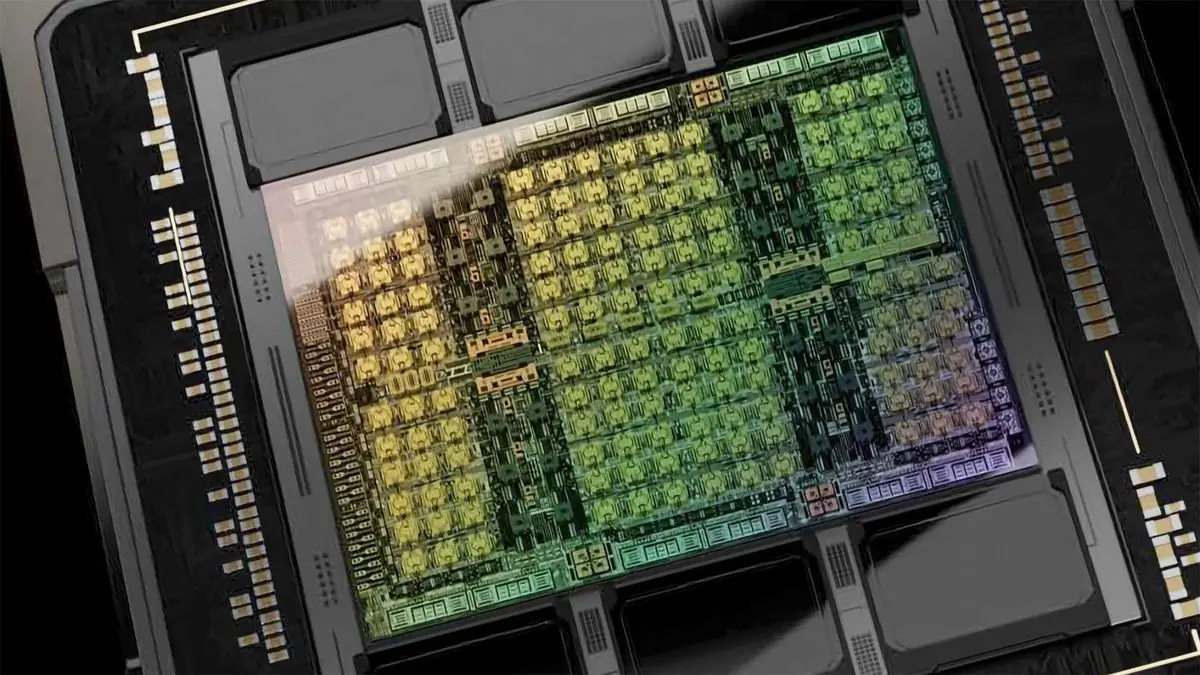
Source: Tom's Hardware
The H20 GPU, while less powerful than Nvidia's top-tier chips, significantly outperforms current Chinese-made alternatives. Moolenaar argues that this disparity could provide a substantial boost to China's AI development capabilities
3
. He cites examples of potential misuse, including Tencent's reported use of H20s to train its Hunyuan-Large model, which likely required over 200 PFLOPS of computing power - meeting the U.S. government's definition of a supercomputer1
.Production Capabilities and Market Dynamics
The letter highlights the vast difference in production capabilities between U.S. and Chinese companies. While Huawei's partner SMIC is expected to produce only 200,000 Ascend 910B processors in 2025, American companies plan to deploy over 14 million AI processors this year
1
. This disparity raises concerns about China potentially leveraging U.S. technology to capture a significant share of the global AI market.Proposed Policy Changes

Source: Wccftech
Moolenaar recommends a shift in export control strategy. Instead of using fixed U.S. performance metrics, he suggests adopting a dynamic standard that stays just ahead of China's known domestic capabilities
1
. This approach aims to balance competitive interests while preventing China from accessing technologies significantly beyond their current production abilities.Related Stories
Industry Perspectives and Responses
Nvidia and AMD have argued that overly restrictive U.S. policies could push Chinese entities to seek alternatives, potentially harming U.S. companies' market positions
3
. However, Moolenaar counters this by pointing out Nvidia's superior production scale, which makes it unlikely for Chinese alternatives to fully replace U.S. chips in the short term5
.Next Steps
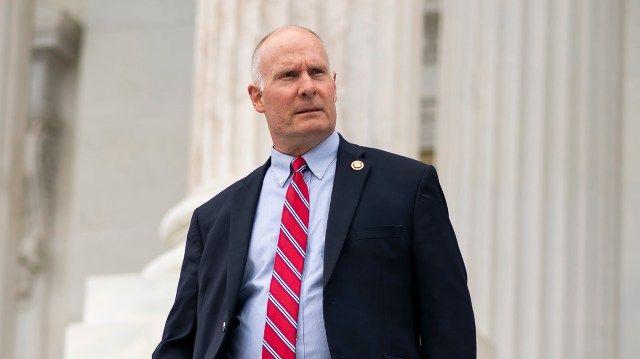
Source: The Hill
Moolenaar has requested a detailed briefing from the Commerce Department by August 8, 2025. He seeks clarity on licensing decisions, projected shipment volumes, risk assessments, enforcement mechanisms, and potential policy updates related to AI technologies and export controls
1
. This development underscores the ongoing challenges in balancing technological advancement, economic interests, and national security concerns in the rapidly evolving field of AI.References
Summarized by
Navi
[1]
[3]
Related Stories
Senators Push SAFE Chips Act to Block Advanced AI Chips Sales to China for 30 Months
05 Dec 2025•Policy and Regulation
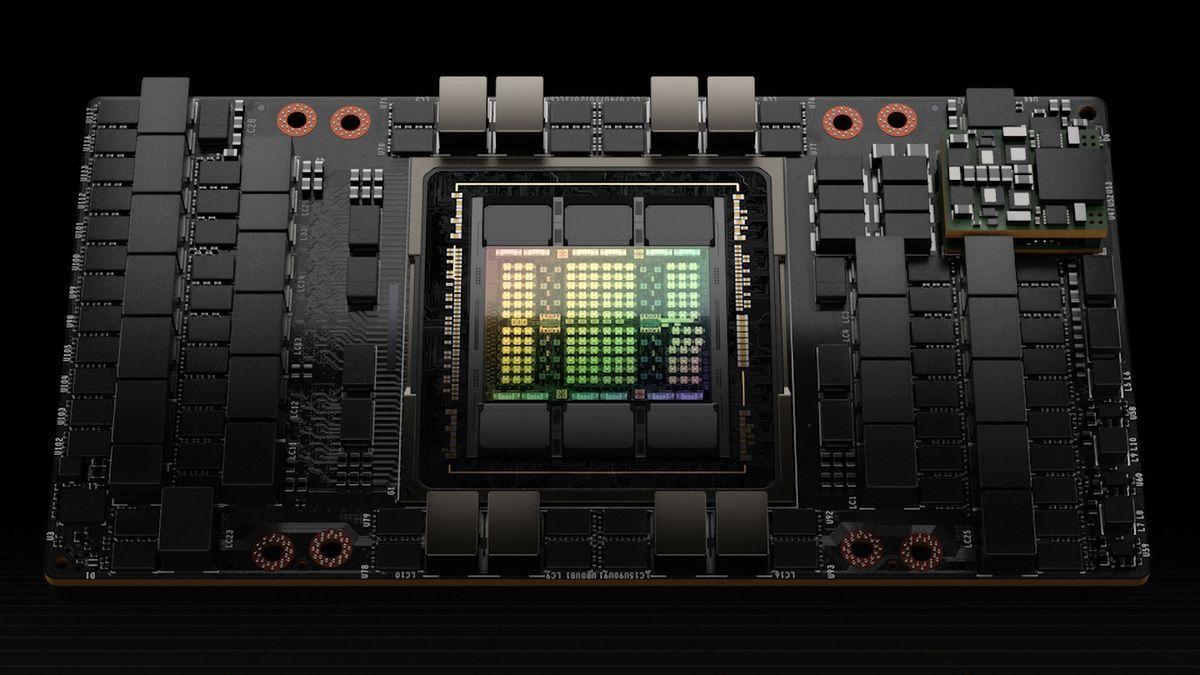
Trump Administration's Reversal on China Chip Ban Sparks Bipartisan Backlash
29 Jul 2025•Policy and Regulation
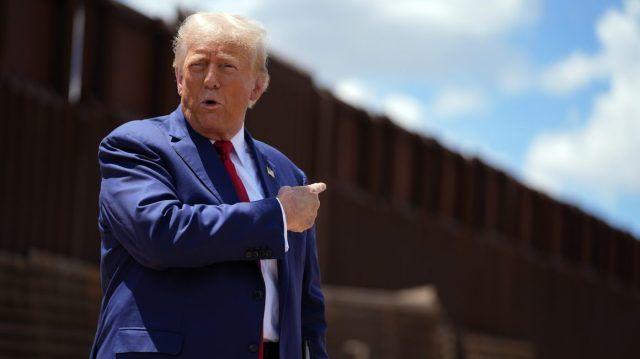
Congress advances AI Overwatch Act, seeking veto power over Trump's AI chip exports to China
21 Jan 2026•Policy and Regulation
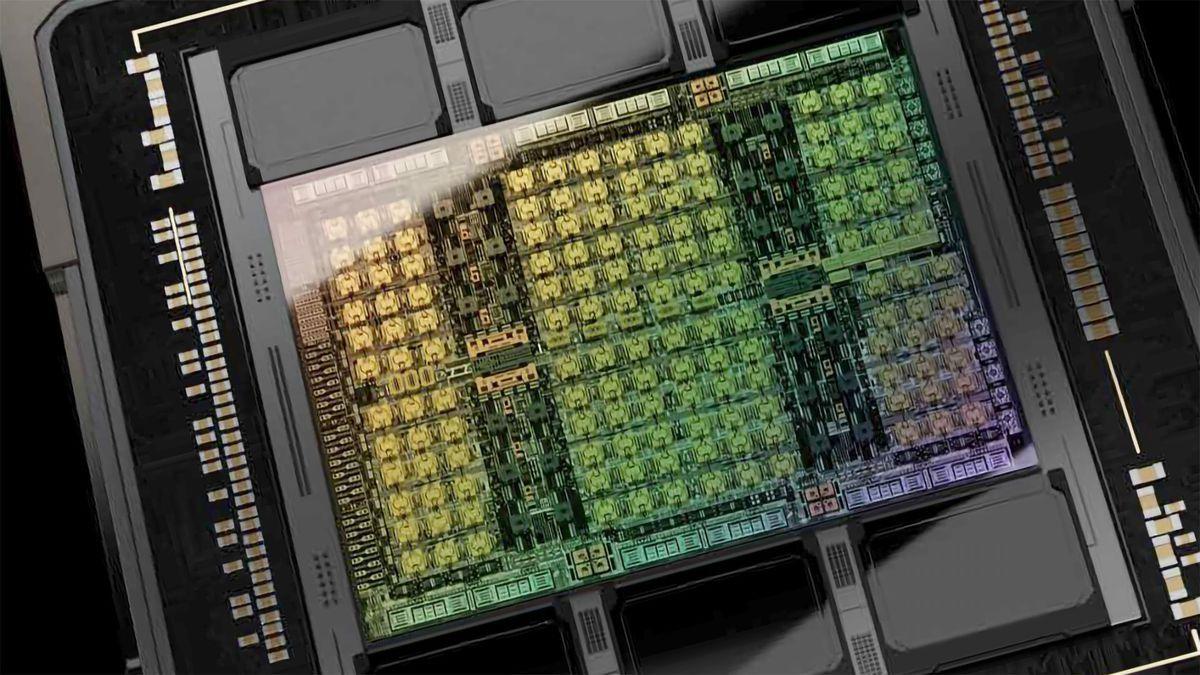
Recent Highlights
1
ByteDance Faces Hollywood Backlash After Seedance 2.0 Creates Unauthorized Celebrity Deepfakes
Technology

2
Microsoft AI chief predicts artificial intelligence will automate most white-collar jobs in 18 months
Business and Economy

3
Google reports state-sponsored hackers exploit Gemini AI across all stages of cyberattacks
Technology





